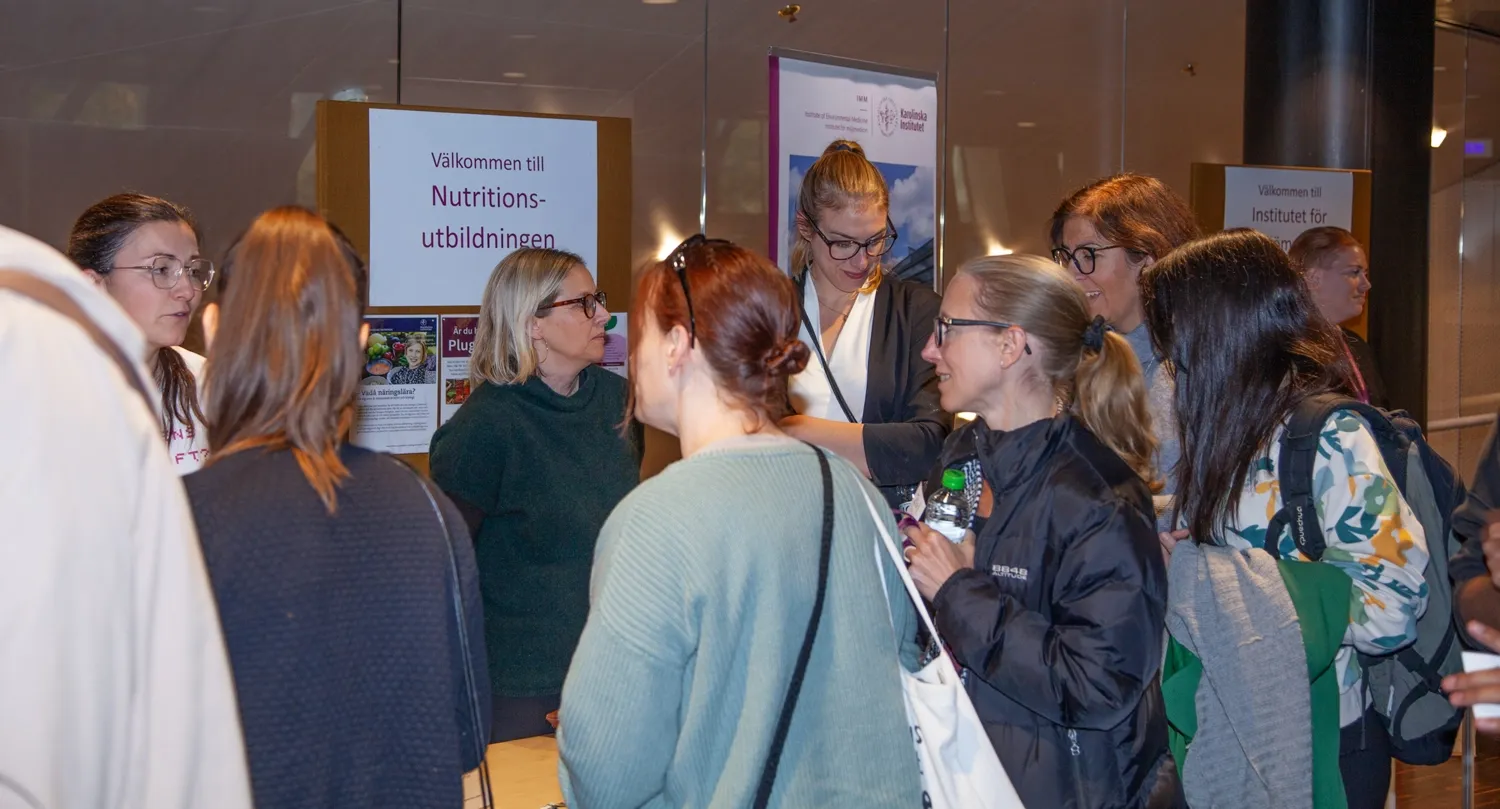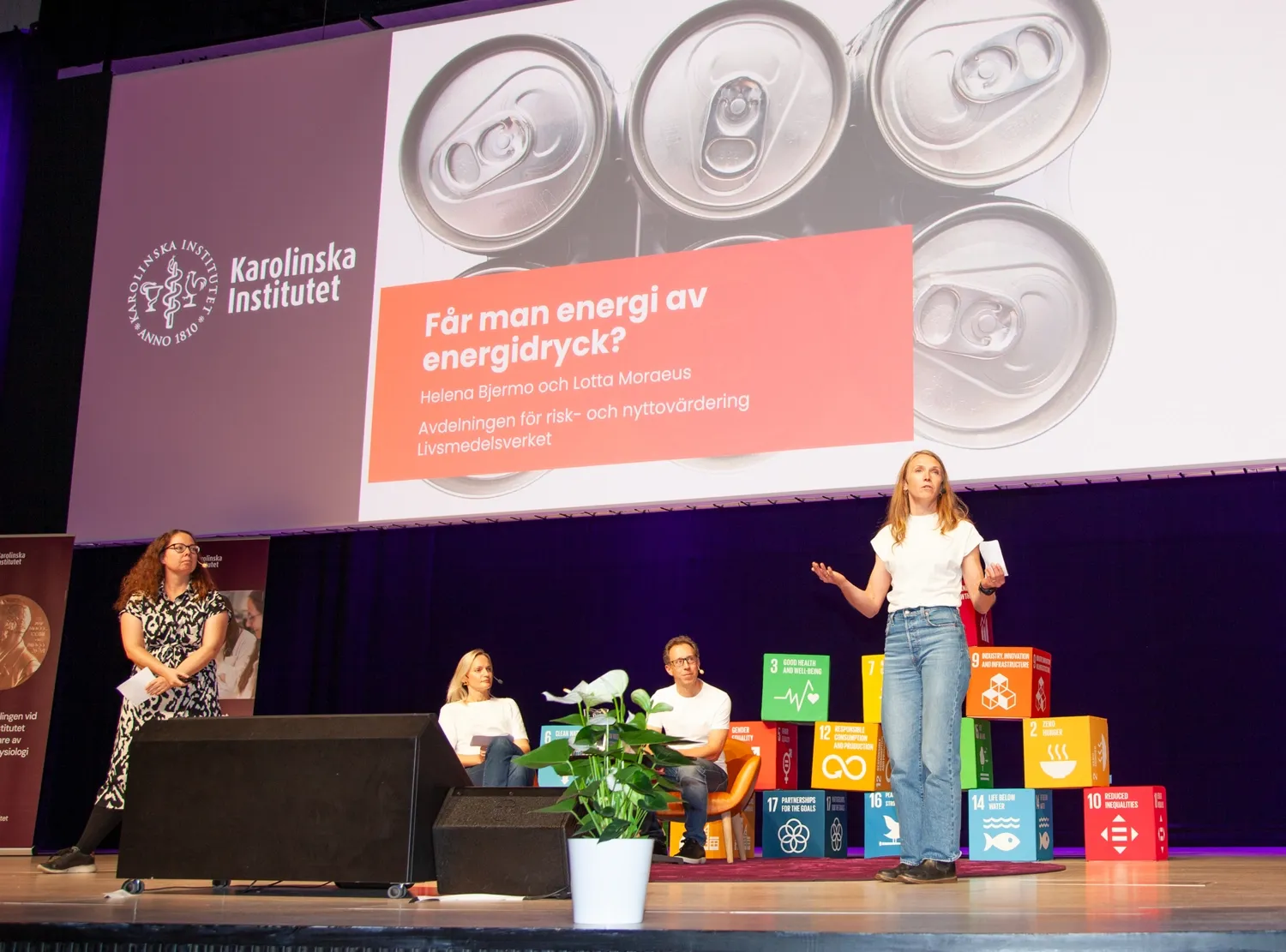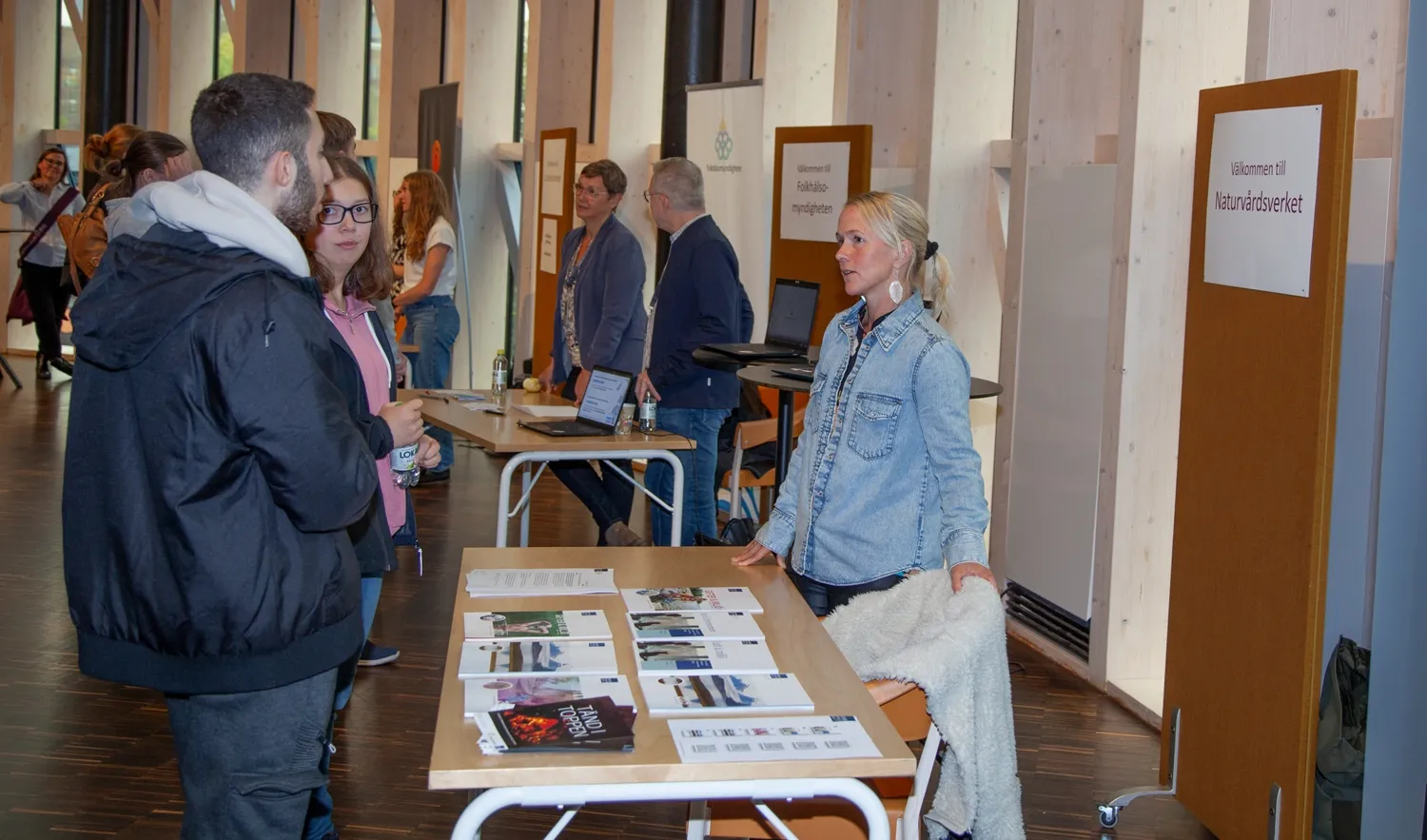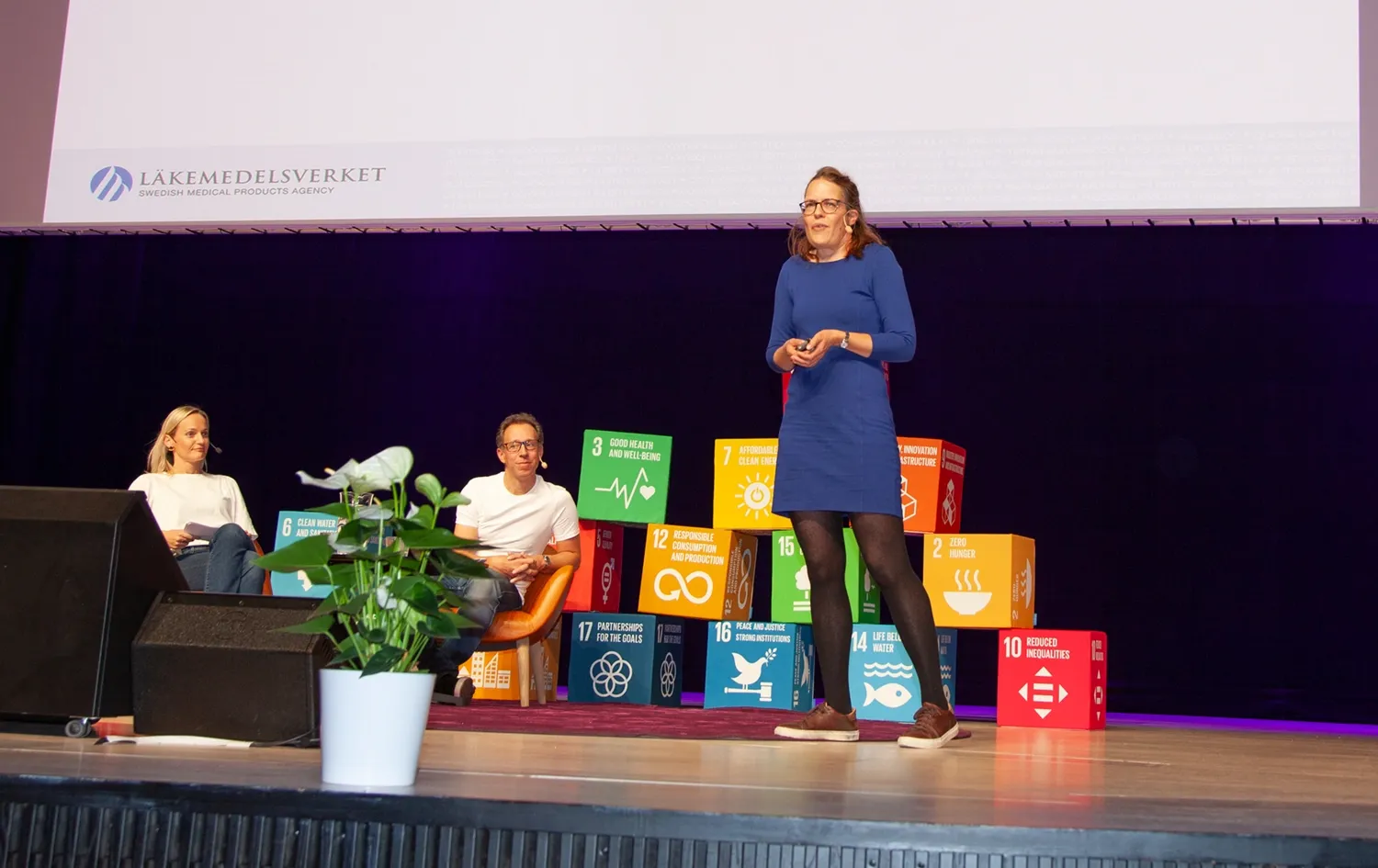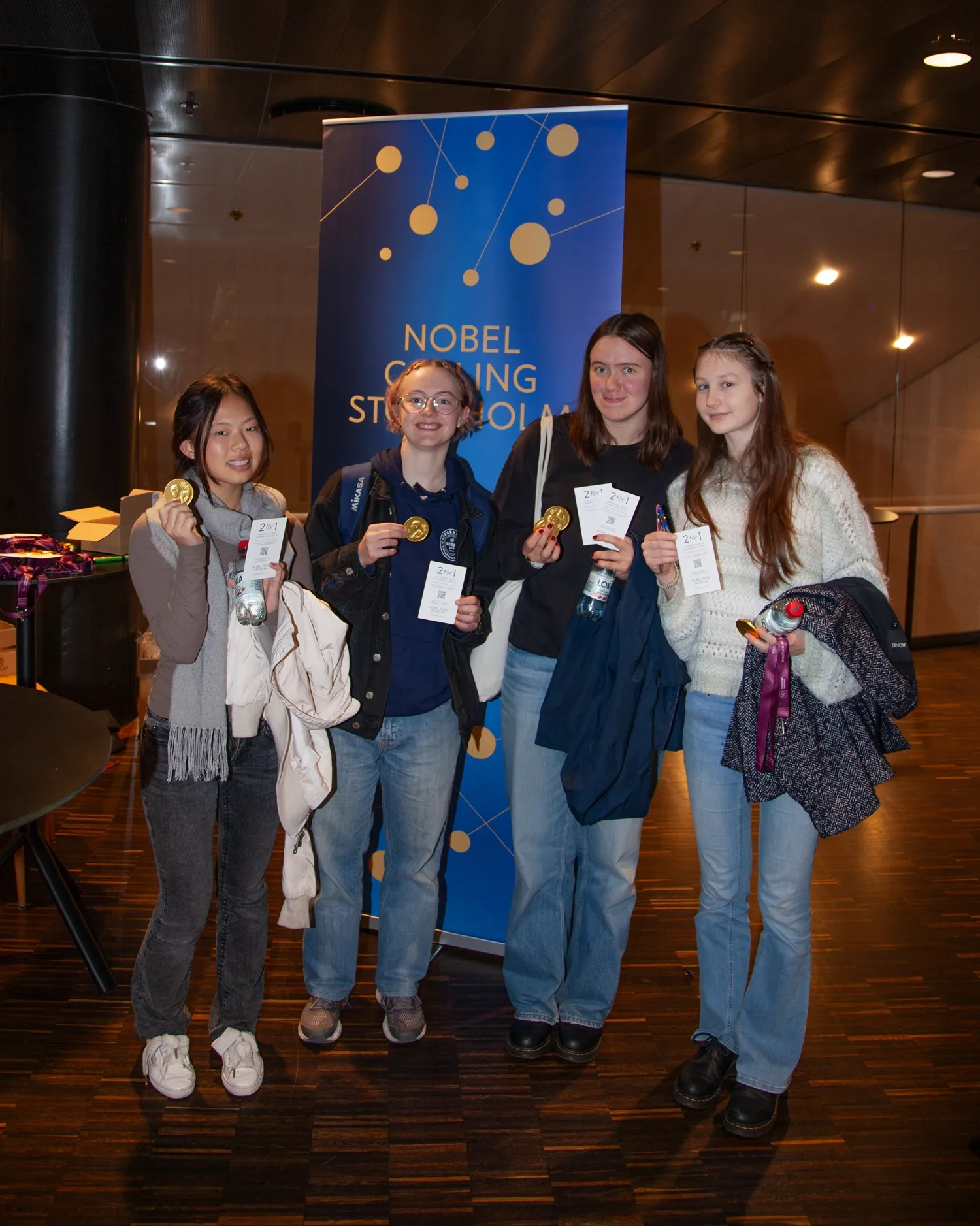The Institute of Environmental Medicine (IMM) arranged a seminar during October’s Nobel Calling week for upper-secondary school science students. Over 800 participants from around the Stockholm region gathered in Aula Medica to hear the latest news and issues concerning young adults’ environments, lifestyles and future career choices with an overall focus on human health.
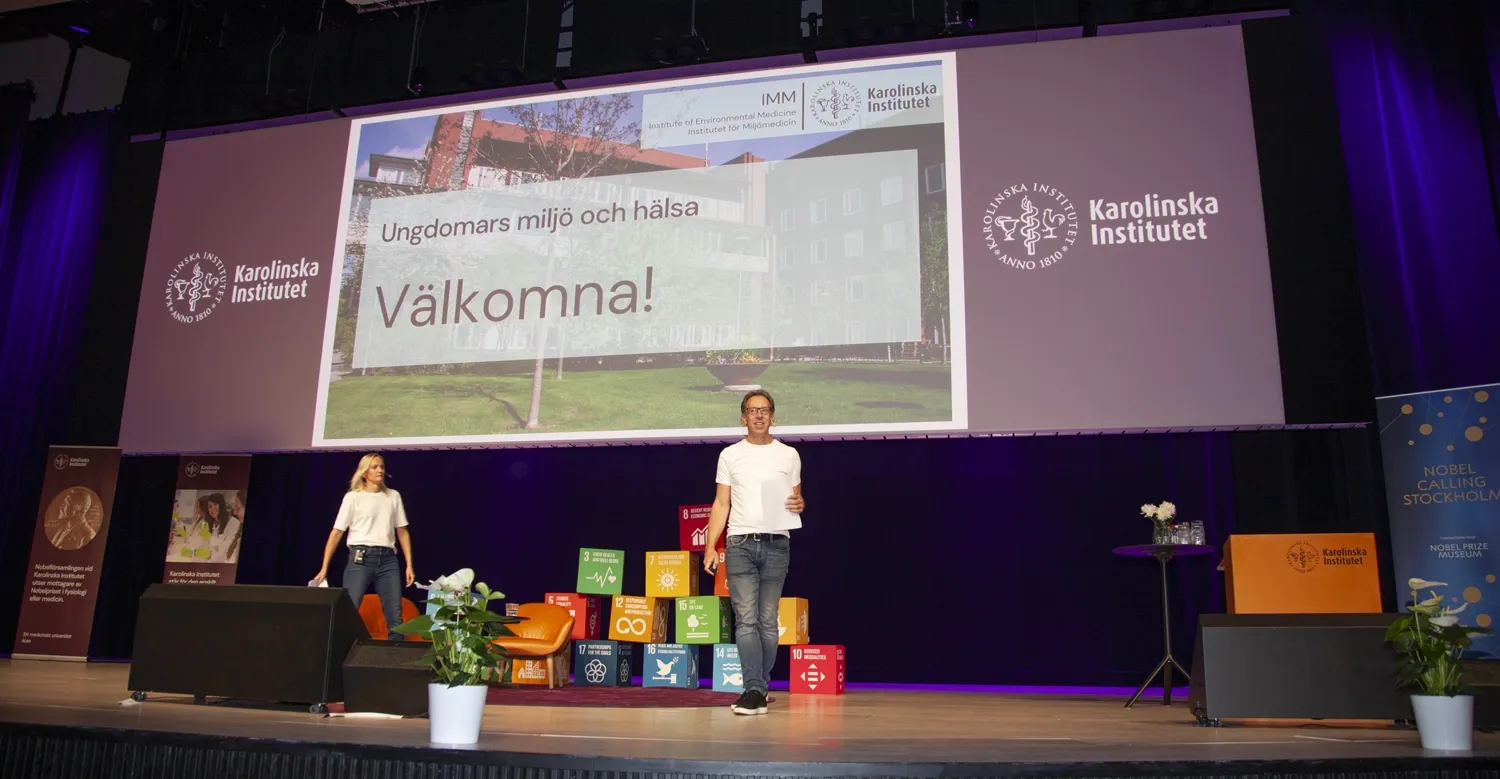
Universities have an important societal responsibility when it comes to spreading knowledge and promoting lifelong learning. By reaching out to upper-secondary students, IMM hopes to inform them about important issues and inspire them to go into higher education and research.
Meeting researchers and hearing about their work can help students understand how knowledge is created and the importance of research to society. It can also help them think more critically and scientifically.
A huge response
The background to the seminar was IMM’s responsibility as a national expert body in the field of environmental medicine and the university’s third mission – to interact with the wider community and make sure the knowledge and competence it possesses are put to full use.
Maria Kippler, deputy head of IMM, is delighted with the event:
“We’ve had a fantastic response, both before the event and since. Teaching staff and students enjoyed the lectures and appreciated the ability to meet researchers and representatives from Swedish authorities, and our own researchers say that it was inspiring to meet such curious and interested young people.”
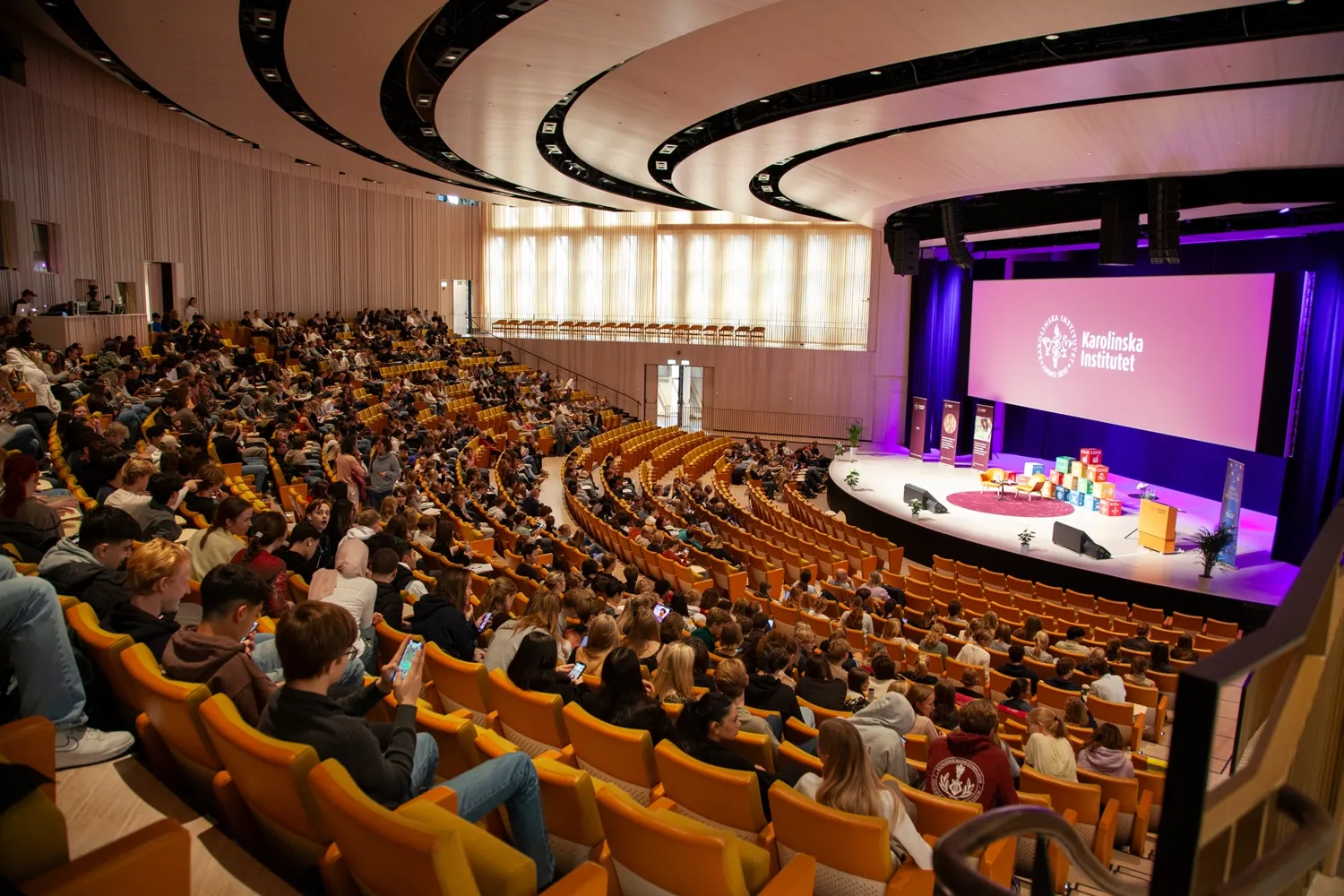
After the lectures, the young audience gathered in the spaces on two floors outside the huge auditorium to chat with researchers and tour the exhibition stands staffed by people from KI and other public authorities.
Stimulating curiosity and inspiring
Participating alongside IMM’s own researchers were Marie Löf and her colleagues from the Department of Medicine in Huddinge with information on physical activity and screen time, and a display about KI’s Bachelor’s programme in nutrition.
“A well-organised and very important event!” says Professor Löf. “Apart from giving people the chance to hear about fascinating research projects, these kinds of activity can stimulate curiosity and inspire them to go into further education. We researchers always love meeting and talking to upper-secondary students – they’re the future and the next generation of researchers.”
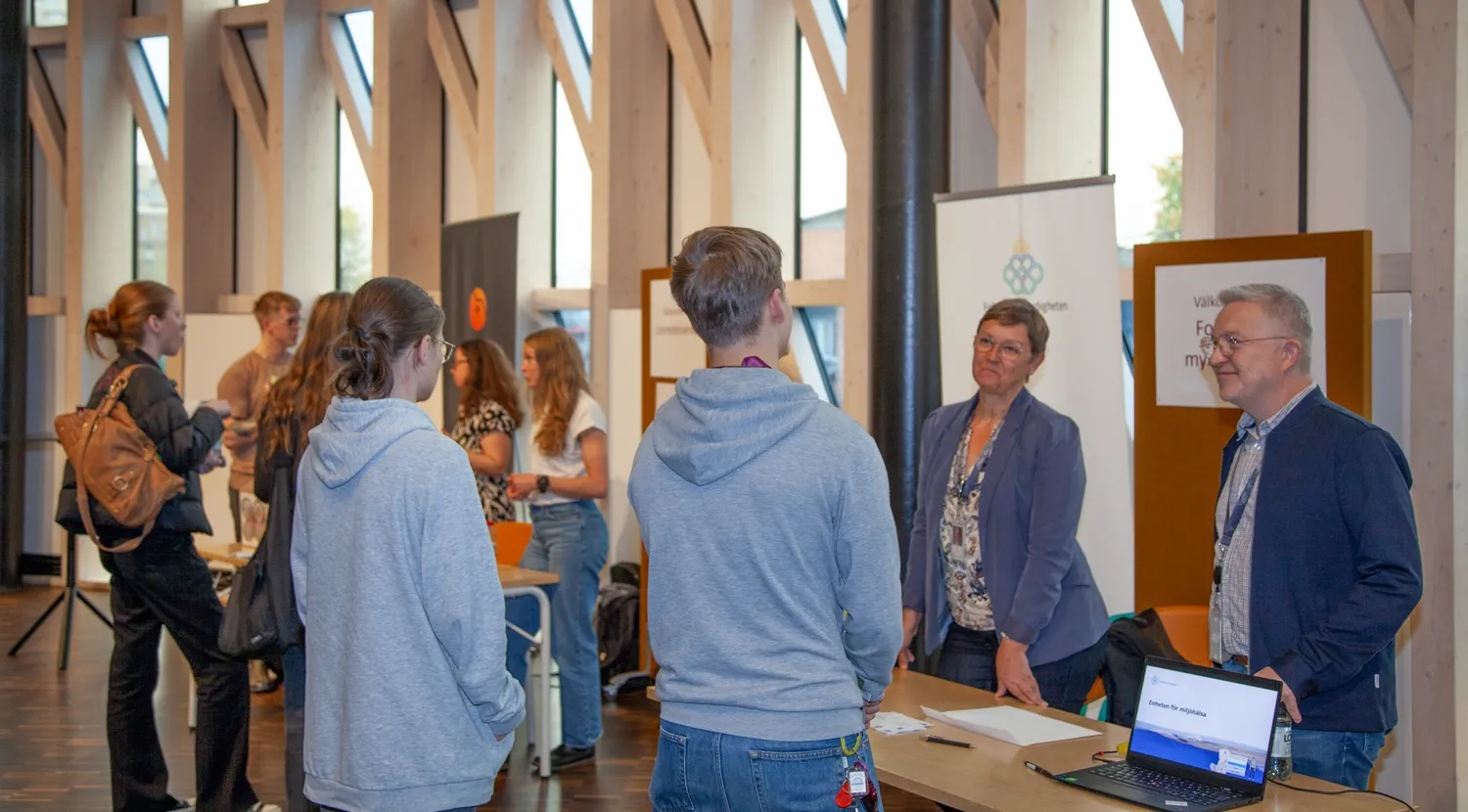
Additionally, some of IMM’s appointing authorities were invited to hold their own presentations and run a table at the general gathering afterwards. One of them was Malin Larsson from the Swedish Public Health Agency.
“It genuinely felt as if the conference was aimed at young people, with compelling but brief lectures on fascinating subjects of current interest, music, audience interaction via Menti and in person, a great atmosphere and the following meet-and-greet. It’s good that the conference makes reference to the Nobel Prize, too. We got to meet many ambitious, wonderful young people. What an energy kick!”
The lectures were also offered as a webinar. The invitation to follow the seminar on Zoom was sent to 420 schools across the country.
This was the second time that IMM had invited upper-secondary classes to Aula Medica; the third is being planned for 2026.
